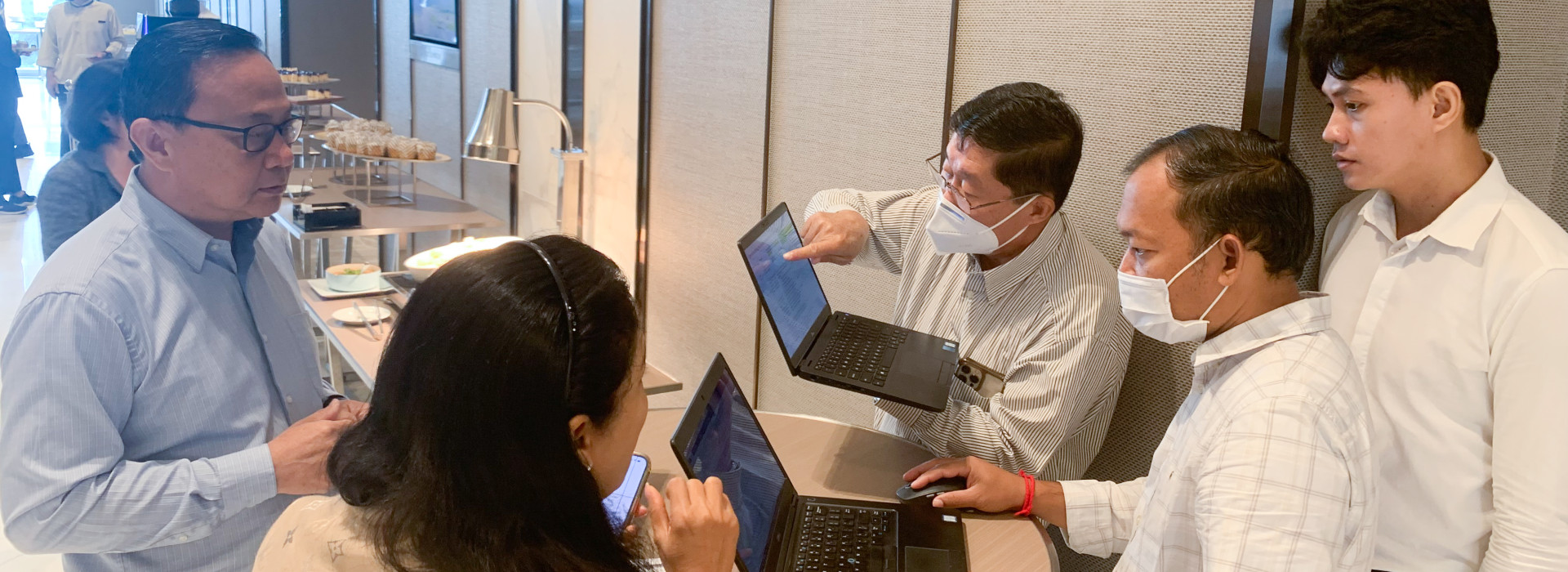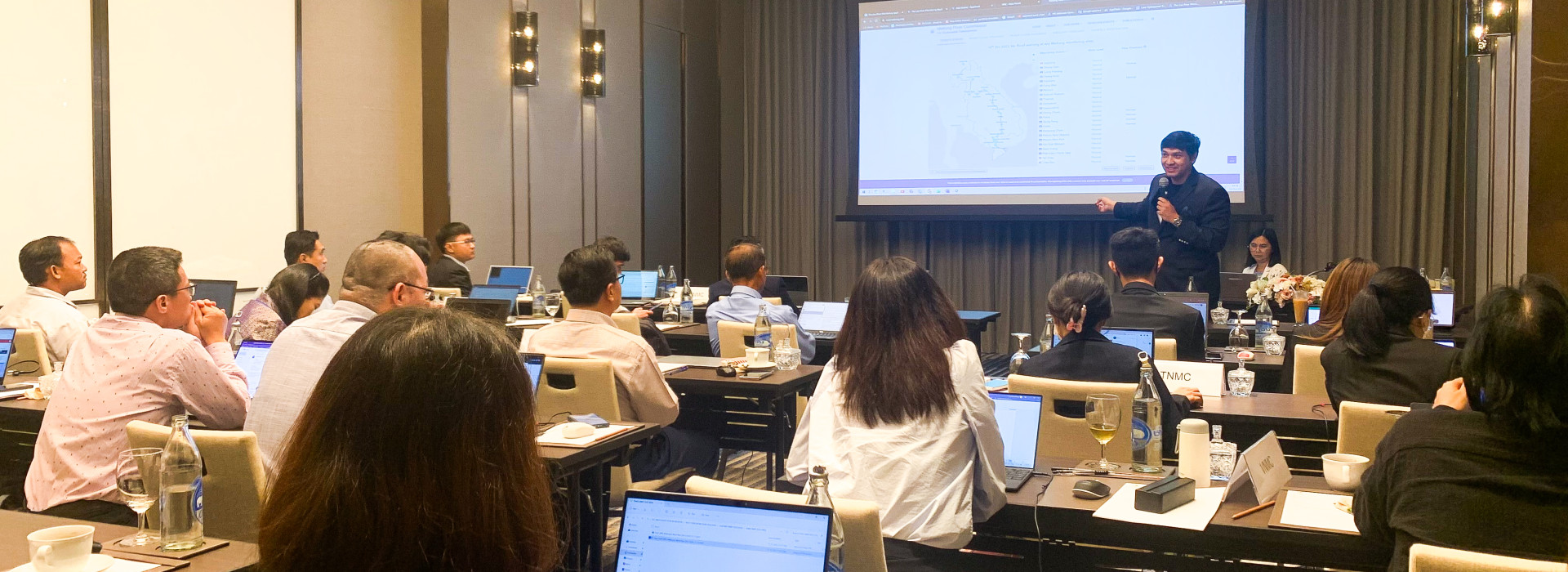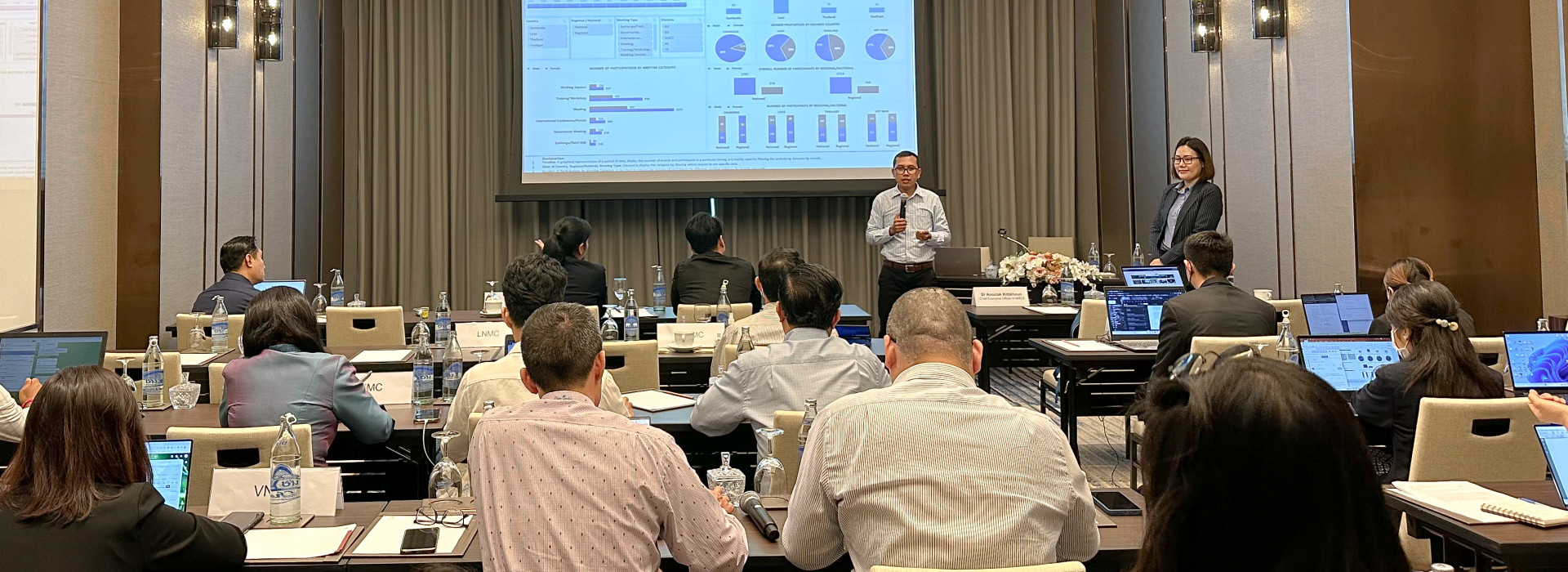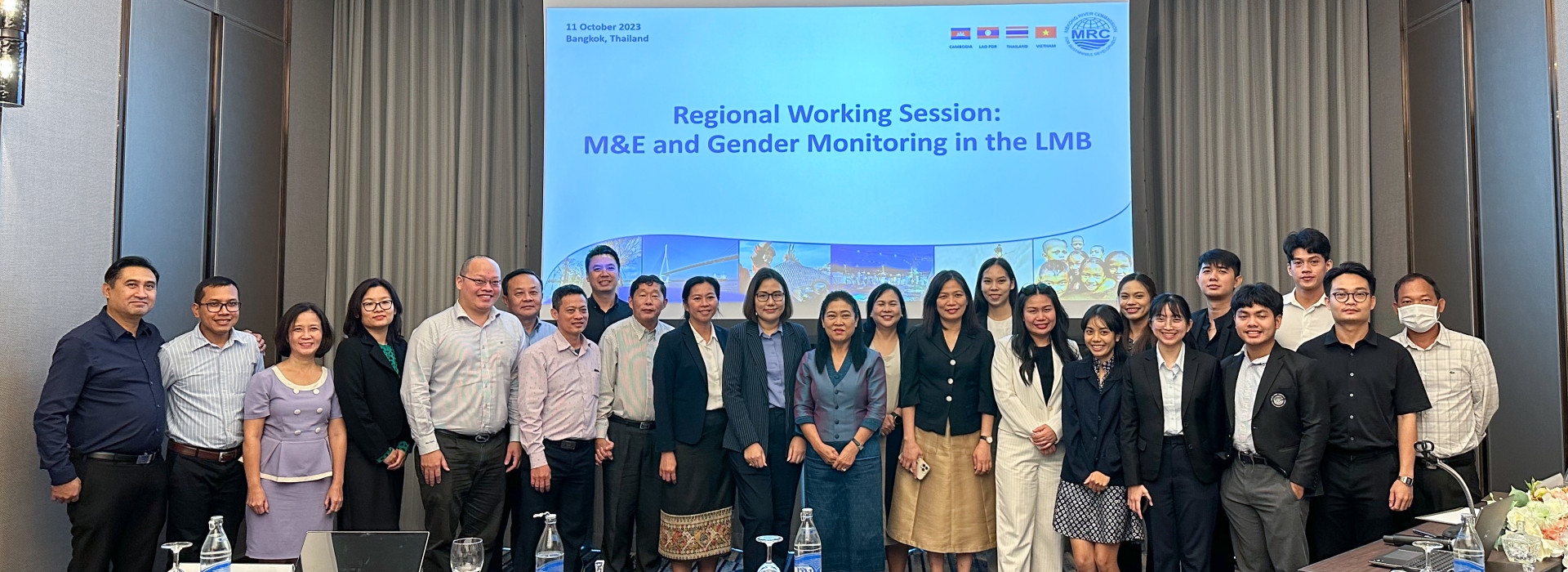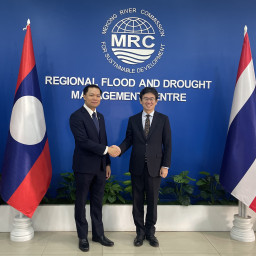MRC workshop endorses efforts to promote gender equity in Mekong
Bangkok, Thailand, 17 October 2023 — The Mekong River Commission and its four Member Countries voiced support to not only expedite gender mainstreaming across all activities that help safeguard Southeast Asia’s most important waterway, but to also encourage male riverine officials to become “champions” who advocate for involving more women, according to a recent MRC workshop.
Participants in the Regional Working Session on Gender, which took place on 11 October in Bangkok, even discussed a new form of accountability for MRC Member Countries Cambodia, Lao PDR, Thailand and Viet Nam. As part of the agency’s deepening efforts to collect gender data, attendees learned to develop “tools to monitor women’s participation across various MRC meetings.”
“If we’re truly serious about gender equity, it cannot only be the responsibility of women who speak up for their rights. Men should champion this issue, too,” says Mr Hak Socheat, Deputy Secretary General of the Cambodia National Mekong Committee. “Moreover, we should publicly track our progress, to show our societies that we mean what we say and are taking meaningful action.”
Recent years have seen gender mainstreaming become a greater priority for the intergovernmental agency. Not only is it a priority for the international community – of the world’s 17 Sustainable Development Goals, #5 focuses on Gender – but the issue is also driven by the Mekong region’s desire for greater fairness and equity.
For the MRC, one of the most meaningful achievements of 2022 was the enhanced data collection efforts to measure gender disparity, through the Social Impact Monitoring and Vulnerability Assessment (SIMVA). As the 2022 MRC Annual Report noted, “Today, there is growing awareness of the need to understand gender in terms of inequity and impact. To mitigate both, more accurate data” is needed.
Then, late last year, the MRC published a new document for an audience that includes the MRC Secretariat, Member Countries, the public sector, and anyone else who seeks guidance on this gender issue: Handbook on Mainstreaming Gender into the MRC’s Core Functions and Activities.
As Dr Anoulak Kittikhoun, the CEO of the MRC Secretariat, wrote in the Foreword of this Gender Handbook: “For too long … we haven’t done enough to ensure that women in the Lower Mekong River Basin are provided equal access to both water and related information. Without such consideration, that doesn’t just mean inequity, unfairness or deprivation for women; it may also lead to their greater vulnerability.”
To match words with deeds, participants in Bangkok also discussed how to “operationalize” the Gender Action Plan (GAP) for 2023–2024 – and developed national action plans to expedite its implementation. The GAP, which is a significant component of the broader MRC Strategic Plan 2021–2025, aims to mitigate gender and vulnerability (G&V) challenges by providing “detailed descriptions of the planned activities needing to factor in the G&V approach, and specific sub-deliverables.”
Ms Le Thi Huong, a senior official from the Viet Nam National Mekong Committee, said the most vulnerable Mekong citizens deserve assistance: “These important documents are always filled with lofty aspirations, but the GAP is a roadmap that leads us, step by step, through all the concrete actions we must implement, to positively impact gender and vulnerability issues across the Basin.”
Note to Editors:
The MRC is an intergovernmental organization established in 1995 to boost regional dialogue and cooperation in the Lower Mekong River Basin. Based on the Mekong Agreement among Cambodia, Lao PDR, Thailand and Viet Nam, the MRC serves as both a regional platform for water diplomacy and a knowledge hub – to manage water resources and support sustainable development of the region.
###
